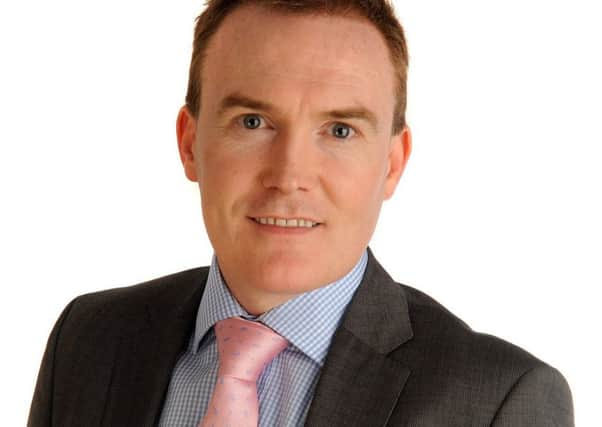Ediston aims to become £400m business


Ediston Property Investment Company (Epic), which is a UK-listed real estate investment trust (REIT) whose portfolio includes 145 Morrison Street in Edinburgh and B&Q in Coatbridge, said 2016 was a positive year despite various headwinds.
Investment director Calum Bruce told Scotland on Sunday that hurdles included the increase in stamp duty and the UK’s vote to leave Europe. He highlighted that in its annual results to 30 September 2016, the REIT’s property portfolio grew to £181.4m at year-end from £136.4m 12 months previously, while contracted rent increased to £12.1m from £8.6m. Pre-tax profits fell to £7.8m from £12.9m.
Advertisement
Hide AdAdvertisement
Hide AdEpic said it became evident after June’s EU vote that the real estate market was in “an interesting phase”, and Bruce stated that the outcome “did have an impact on the property market – we weren’t immune to that. We did fall slightly over the quarter from June to September, but not as badly as a lot of our competitors and the general market.
“We have come out the other side of that EU referendum result in pretty good shape, as has the market,” and real estate remains an “attractive asset class”
Epic also highlighted post-Brexit advantages including good investor demand driven by overseas buyers. The REIT, which launched on the London Stock Exchange in 2014, also bought two assets at the start of 2016 for £41.4m.
Bruce said Epic would like to raise more equity to drive its growth plans, possibly at the start of this year, and although such a move is not essential, “it would be nice to have some, because I do still think there are some interesting opportunities in the market and we would like to be taking advantage of some of those”. It is not ruling out deals in Scotland, with a “reasonable slice” of its portfolio currently in Scottish assets. It will also consider selling assets, when it sees that it has maximised the value, for example.
As for how Epic might look over the next few years, Bruce says there is no reason why it couldn’t be a £400m business, given its scalable proposition, although he stresses that any growth would be prudent. “We know we can be bigger and we’ve got good foundations there to sustain a company of that size.”
Looking to its next full-year results, Bruce added: “I like to think we would be bigger, we’d have more assets under management. I would like to think we’ll have executed some interesting asset-management deals over the course of the year.”